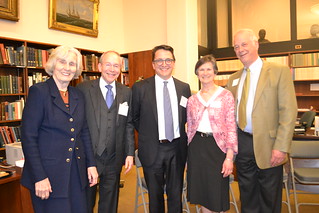Our hope as a free research library is that our collections reach far beyond our exhibitions, programming, reading rooms, and catalogs. One way we do this is by issuing rights to include reproductions of pieces from our collections in the published works, exhibitions, television productions, and online resources created by our patrons. We fulfill requests that bring the Library Company’s collections to audiences we may never reach alone. From short blog posts to textbooks distributed to students worldwide, there is seemingly no limit to the subjects the Library Company can inform or illustrate.
Many cultural institutions question how to truly measure their impact. At the Library Company, seeing our collections go out into the world and meet new audiences is one of many quiet reminders that the exceptional work of our Curators and Librarians is more valuable now than ever.
In the past decade, our Rights & Reproductions operation has shifted in ways that mirror our increased online presence and collections acquisitions. Fewer patrons order physical prints now that a high-resolution digital copy can be delivered at a lower cost. The materials requested over time paint a picture of broader trends in scholarship. More, if not most of our requested uses are born-digital (created with a computer).
Recently, we’ve provided pieces from our Aero Service Negatives to help identify long-demolished buildings. Library Company classics like “Liberty Displaying the Arts…” and the silhouette of Moses Williams accompanied exhibitions. Scholars in Europe and North America requested images to accompany their upcoming works on subjects like the Nullification Crisis, petroleum, and Octavius Catto.
Rights and Reproductions not only provides vital service to communities and institutions worldwide, but also provides financial support to the Library Company. Many thanks to all of the donors, scholars, and life-long learners who make the work of the Library Company of Philadelphia possible. If you have any questions or wish to use our materials in your own works, please feel free to place an order using our online request form or contact our Rights & Reproductions team at repros@librarycompany.org.
Thank you for your interest in our collections.
Ann McShane






